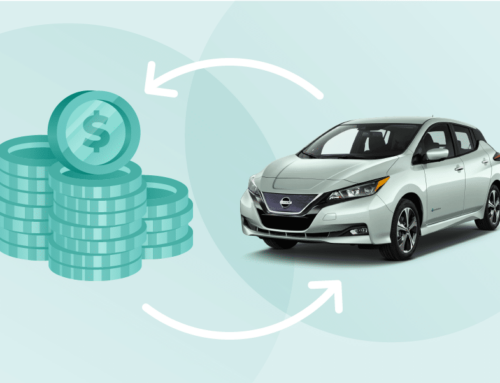If you’re struggling with debt, you know how frustrating it can be. Owing money to your various creditors is already stressful enough (not to mention its impact on your credit score and ability to afford other bills), but to add salt to the wound, debt collectors are constantly contacting you to pay up.
It’s not like you don’t want to escape debt, but the harassment doesn’t help. You can’t help but wonder: how long can debt collectors try to collect in Canada, anyway? How long will you have to put up with the calls and emails if it’s going to be a while before you’re in a financial situation healthy enough to start making payments?
In this blog post, we’ll answer your questions regarding how long a debt collection agency can collect on a debt in Canada, the statutes of limitations, and what your options are.
How Long Can Debt Collectors Try to Collect in Canada?
Truthfully? As long as they want. Debt collectors can try to contact you as long as you owe the debt — but that doesn’t mean they will.
Debt collection agencies will likely stop calling you after six years. Why? Because that’s the federal statute of limitations of how long they can take legal action against you. That’s their leverage: they can threaten to take you to court to scare you into making a payment. Even though you still owe money after six years (which is how long the debt remains on your credit report), collection agencies lose their official means to frighten you. After that, there’s not much they can legally or ethically do.
Remember, though, that as soon as you make a payment on an older debt, promise to, or acknowledge the debt in any other way, the time period restarts and you are no longer outside the statute of limitations. Collectors can also continue to contact you for an extended period if you don’t notify them of changes to your address or telephone number.
This law also applies to debt owed to private lenders. Debt you owe to the government, student loans, and other types such as debt from fraud, however, don’t fall under the six-year rule.
Statute of Limitations on Debt in Canada by Province
Six years is the federal statute of limitations on debt in Canada, but individual provinces sometimes have different rules. For example, the window of time is:
- Two years in Ontario
- Two years in British Colombia
- Two years in Alberta
- Three years in Quebec
- Six years in Manitoba
- Six years in New Brunswick
- Six years in Newfoundland
- Six years in Prince Edward Island
- Six years in the three territories
So, the answer to how long can debt collectors try to collect in Canada for the most populous provinces is actually less than six years. If you live in one of these areas and struggle with debt, you won’t have to deal with collector calls for as long as the federal limit.
Who Is Trying to Call You?
You must be curious as to who they are and who they work for.
Sometimes, the collector calling works for your original lender or creditor (i.e., the company that sold you goods or services you owe money for, or provided you credit). These organizations might follow up themselves or hire a specialized debt collection agency to contact you on their behalf.
Other times, firms known as debt buyers will purchase your unpaid account from your lender. This way, your lender doesn’t lose money, but now the firm wants to try to collect and can still threaten legal action against you.
What’s the Likelihood of Being Taken to Court?
Six years is the window collectors have to take legal action — and they might. A debt collector may decide it’s worthwhile following through on its threats and filing a lawsuit against you.
However, it’s also important to remember that this scenario is unlikely because it costs collectors thousands of dollars to see a lawsuit through, which is likely not worthwhile for small amounts (in this case, collection may cost the agency more than the debt itself). They are also unlikely to sue if you don’t live in the country anymore or are a non-Canadian who owes money to a Canadian lender.
As we’ve mentioned, debts never expire, but statutes of limitations protect you from being taken to court. You can file a Statement of Defense if a lender or collector tries to sue you outside of your province’s given window.
It’s also unlikely a debt collector will try to legitimately sue if you are “creditor proof,” meaning you don’t have garnishable income or don’t own assets. In this case, collectors can’t actually recover any money from you, even in court.
How to Get Collectors to Stop Calling
You don’t have to wait out the statute of limitations on your debt to get collectors to stop calling you. You have more options than you know, such as filing a consumer proposal. A consumer proposal is when a Licensed Insolvency Trustee assesses your financial situation and helps you come up with a reasonable payment plan and negotiates with your creditors on your behalf. If they agree to the terms, extraneous debt is forgiven (as long as you make said payments) and the calls from collection agencies stop. You can also consider debt consolidation, which is another way to make repaying debt more feasible.
If you don’t want to choose an option that involves decreasing your credit score or owing further debt on a loan, you can turn to Marble. Marble’s CreditMeds solution uses advanced AI and simulators to prescribe a personalized debt relief plan catered to your specific situation. It takes a bird’s-eye look at your financial situation, spending habits, income, and other factors to create a plan that’s possible for you to follow if you ascribe to its recommendations. This route empowers you to escape debt the old-fashioned way and improve your financial literacy.
Sign up with Marble today, discover your financial options, and live a happier, debt-free life.






